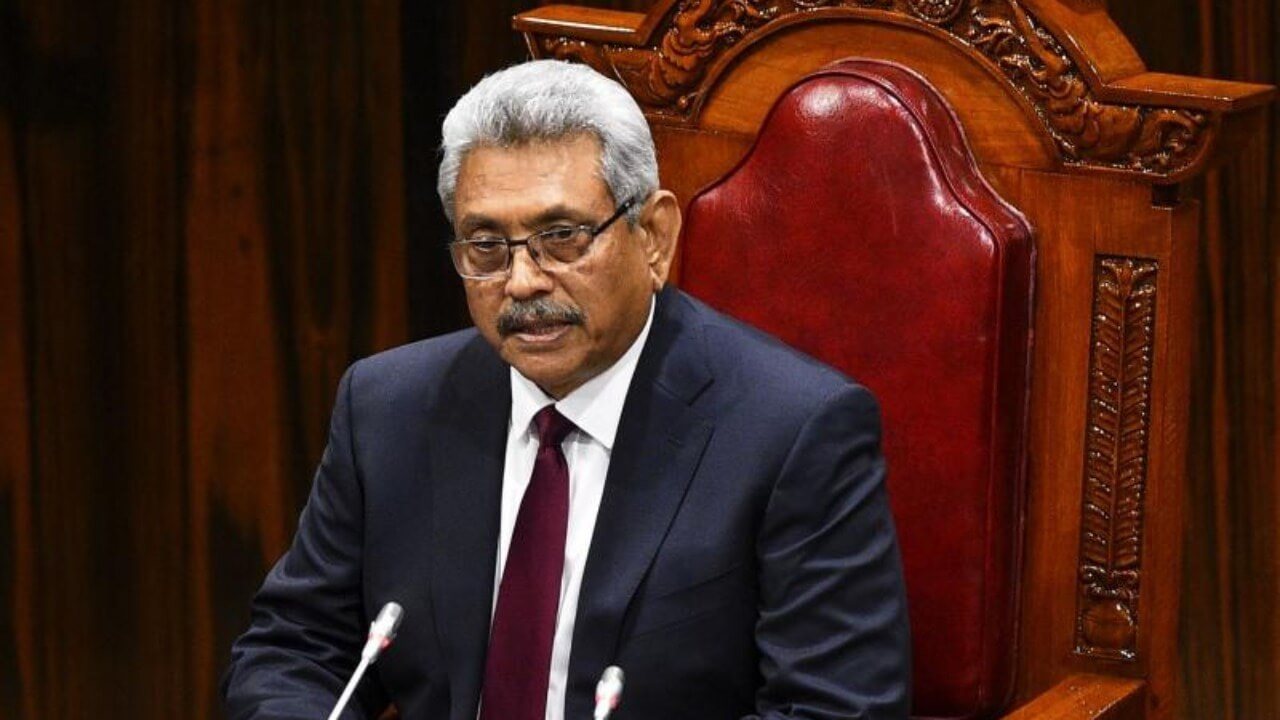Sri Lankan President Gotabaya Rajapaksa has vowed to take “immediate steps” to reform the country’s anti-terror laws. This follows threats by the European Union (EU) to suspend Sri Lanka’s favourable trade status if it does not work towards improving the human rights situation in the country.
Sri Lanka enjoys trade privileges with the EU under the generalised system of preferences (GSP Plus) scheme, wherein the bloc gives a favourable trade status to countries to encourage them to protect human rights and freedoms. Through this scheme, Sri Lanka receives almost $350 million from the bloc. However, the bloc recently threatened to withdraw the status amidst several concerns raised in the international fora regarding the deteriorating human rights situation in Sri Lanka.
Consequently, during a meeting with EU officials on Monday, the Sri Lankan president said that the country’s Justice Minister and Attorney General have been informed about the need to make changes to the Prevention of Terrorism Act. According to a statement released by Gotabaya Rajapaksa’s office, he said, “Immediate steps will be taken to amend the necessary provisions of the PTA.” In addition, the statement read, “President Rajapaksa also stated that the country would abide by the agreements on human rights in the world today.” During Rajapaksa’s meeting with the officials, he also said that the government would work with civil society organisations to further ethnic reconciliation in Sri Lanka, which officials have shown little interest in following the conclusion of the 37-year-long civil war in the country.
The law came under the scanner for providing overreaching powers to the police. Apart from giving the power to arrest and detain suspects for arbitrarily long periods of time, the law also allows detainees to be held without charges. Estimates suggest that under this legislation, at least 78 prisoners from the minority Tamil community have been detained without charges, with some of them in custody for over three decades. These concerns were brought up by the Tamil National Alliance during their meeting with the visiting EU envoys last month, resulting in the abovementioned warning from the bloc.
There has been rising concern about the human rights situation in Sri Lanka since Rajapaksa assumed power in 2019. The brutal civil war, which was fought for 25 years from 1983 to 2009 between the Sri Lankan government and Tamil separatist groups, resulted in the death of more than 100,000 civilians. Human rights organizations have accused the Sri Lankan military of committing crimes against humanity, including indiscriminate shelling, forced disappearances, denial of aid, and sexual violence. However, the Sri Lankan government has repeatedly denied these charges.
In fact, in 2010, the EU withdrew Sri Lanka’s GSP Plus privileges owing to the authorities’ failure to conduct trials for crimes committed during the civil war. However, after Sri Lanka vowed to adopt reforms, the status was reinstated.
Rajapaksa’s statement is likely to be welcomed by the Tamil community, who have often found themselves at the brunt of the legislation. However, the reform may not be enough to ensure the continuation of Sri Lanka’s trade status with the EU and the country may be required to implement even more drastic changes to satiate the bloc’s demands.
Sri Lankan President Rajapaksa Vows to Reform Anti-Terror Laws Amid EU Pressure
Amidst rising pressure from the international community on the Sri Lankan government, President Gotabaya Rajapaksa vowed to reform the country’s anti-terror laws.
October 6, 2021

SOURCE: DECCAN HERALD
